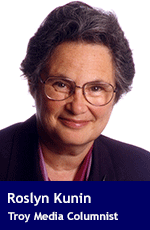 As we get ready to change our calendars, we reflect on the year that has passed and peer into the misty future.
As we get ready to change our calendars, we reflect on the year that has passed and peer into the misty future.
Great is not a word that many would use to describe 2015. In British Columbia, the economy bumbled along, doing slightly better than Canada’s as a whole, which was held up by housing sales, consumer sales and some export sales boosted by Canada’s declining dollar. Demand for B.C.’s usual economy supporting resources (forest products, minerals, energy) was tepid.
For 2016, most forecasters are predicting that the B.C. economy may do a little bit better. Where will that growth come from?
It’s not coming from demand for our traditional wood and mining products or for energy. No booms in those sectors.
Do not expect any pipelines in the B.C economy. The federal government’s ban on crude oil tanker traffic on the West Coast will effectively kill the already approved, if not loved, Enbridge pipeline project. With that and the United States nixing a pipeline south, western Canada’s energy will face very limited markets and the usual pattern of lower-than-world prices.
Crude oil tankers are only banned on the West Coast. Eastern and central Canada will still be able to import crude in tankers from the Middle East. Older readers will remember our prime minister’s father, Pierre Trudeau, also pushing policies that pounded the energy industry in the West.
There are two possibilities that could help get western energy to market. David Black has proposed an oil refinery in the Kitimat area on the northwest coast of British Columbia. No one has yet banned tankers carrying refined oil products. Getting the crude from Alberta to the coast is a challenge if no pipelines are to be built. Black’s solution is transporting the oil by rail. This should give anti-pipeline environmentalists pause. Transporting petroleum by pipeline is relatively safe and cheap. Transporting oil by rail is both more costly and less safe. However, if the better alternative is not available, use will be made of the second best.
A second possibility is to build the suggested Energy East pipeline to move Alberta crude to the East Coast from which it could be exported in tankers. This alternative would have the advantage of being able to deliver crude to central and eastern Canada, reducing their dependence on imported energy; a good step for Canada as a whole.
However, neither Black’s proposed refinery nor the Energy East pipeline are likely to get off the ground in 2016 nor will the latter provide economic stimulus to British Columbia.
There are infrastructure projects that could boost the B.C. economy. And it is possible that one LNG project will actually get started before the end of 2016, but is it likely? Prices for gas are low. World supply is increasing with ever more gas discoveries and countries that are hungrier to export and more laissez-faire about their operations are filling any demand.
Questions over environmental impacts and First Nations territorial issues will affect not only LNG projects but also the Site C hydro project, delaying progress beyond 2016.
Activities that could enhance the British Columbia economy in 2016 should they happen are the Trans-Pacific Partnership (TPP) and the promised federal infrastructure spending. Several B.C. industries, including forestry and mining, stand to benefit from the better access to Asian markets that the TPP will provide. The question is whether the TPP will receive the required national approvals within the next calendar year, if at all.
Infrastructure spending to boost the Canadian economy was a campaign promise that helped elect the federal government. Right now, we do not know what the projects will be, where they will be or even if they will be. Already, the Federal finance minister has started talking about timing, rebalancing and fiscal realities. Don’t hold your breath anticipating major federal projects in B.C. in the next 12 months.
A future column will name some sectors of the B.C. economy that will prosper, offering jobs and incomes in 2016.
Troy Media columnist Roslyn Kunin is a consulting economist and speaker.
The views, opinions and positions expressed by columnists and contributors are the author’s alone. They do not inherently or expressly reflect the views, opinions and/or positions of our publication.


